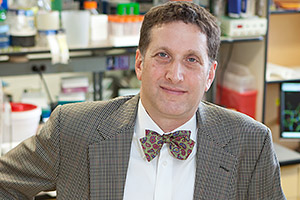
Prof. STEVEN C. ALMO
ENZYME FUNCTIONAL ANNOTATION: FROM NEW MICROBIAL METABOLISM TO MAMMALIAN ANTIVIRAL DEFENSE MECHANISMS
ABSTRACT:
The vast majority of proteins have not been subjected to experimental functional annotation, and a large proportion are misannotated. We describe an integrated pipeline that supports high-throughput cloning, expression, purification, structure determination and functional annotation. The utility of this pipeline is described for the discovery of new microbial metabolism, new metabolites and new chemistry. We have recently recapitulated our entire pipeline under anaerobic conditions, which provides a one-of-a-kind structural and functional genomics resource for oxygen-sensitive proteins. This anaerobic resource has allowed for the discovery of a new mammalian anti-flavivirus host defense mechanism. Future community-wide efforts and large-scale team-based consortia will be required to adequately address the “annotation vacuum”.
BIOGRAPHY:
Steven Almo is the Chairman of the Department of Biochemistry at Albert Einstein College of Medicine/Montefiore Medical Center, where he is Professor of Biochemistry and Physiology & Biophysics. Dr. Almo holds the Wollowick Family Foundation Chair in Immunology and is Director of Einstein’s Macromolecular Therapeutics Development Facility, a resource dedicated to the development and optimization of protein-based therapeutics. Dr. Almo is recognized for his broad contributions to structural biology and has published more than 300 papers. His laboratory has played key roles in the development and implementation of high-throughput approaches for protein production, structure determination and functional annotation. Dr. Almo received his Ph.D. in Biophysics from Harvard University, while working with Greg Petsko in the Chemistry Department at MIT, and is best known for his high resolution structural and biochemical characterization of the CTLA-4 and PD-1 immune checkpoint proteins and their respective ligands.



